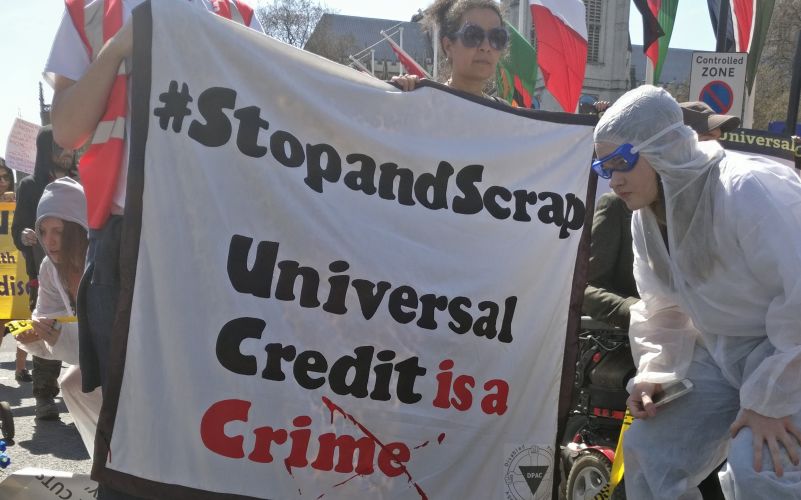Two national advice charities have refused to say if agreements they signed with the government to provide support to universal credit claimants contain gagging clauses that might prevent them publicly criticising the Department for Work and Pensions (DWP).
DWP announced in January that Citizens Advice and Citizens Advice Scotland would receive more than £21 million in funding to extend their agreement to provide support to people making a new claim for universal credit by another year.
When social welfare activist Frank Zola managed to secure copies of the original agreements they signed in 2018, they showed that both charities had agreed to sign gagging clauses that prevented them bringing DWP “unfairly” into “disrepute”.
By signing the documents, it meant Citizens Advice and Citizens Advice Scotland could not take “any actions which unfairly bring or are likely to unfairly bring [DWP’s] name or reputation and/or [DWP] into disrepute”.
But DWP has now rejected a freedom of information request by Disability News Service (DNS) to see the new grant agreements, claiming that they are “commercially sensitive”.
Both charities this week refused to say if the new agreements contained a similar gagging clause to those they signed in 2018.
They insisted in 2019 – when the existence of the gagging clauses emerged – and again this week that nothing in the grant agreements would prevent them speaking out when they wished to do so.
DNS reported in October 2018 how Citizens Advice refused to criticise DWP over four deaths linked to universal credit, just hours after their original £51 million funding had been announced at the Conservative party conference.
Disabled activists who spoke out in 2019 were highly critical of the decision to accept money from the government while agreeing to sign a contract that limited their ability to speak out against DWP policies.
One of them, Dr Jay Watts, said in 2019 that it was “simply bad psychology to argue that dissent on government policies which cause such human rights violations won’t be muted at best by the inherent and often unconscious desire not to bite the hand that feeds”.
Another, Rick Burgess, of Manchester Disabled People Against Cuts, said then that the clause would be “catastrophic for CA’s integrity and for people who need defending from the DWP, and for open democratic oversight of government policies”.
He said this week: “The [CA] leadership have followed a tragic route of degraded accountability and transparency, which is common and deliberate when government contract corporate charity to deliver public services.
“By hiding behind ‘commercial sensitivity’ the DWP make the Citizens Advice Bureaux accomplices in ongoing welfare abuse.
“Bureau workers should demand new leadership with integrity.”
DWP refused to comment this week on its failure to release the grant agreements.
Citizens Advice refused to say if its new agreement with DWP included the gagging clause.
But a spokesperson said: “Our top priority is to support those who come to us for help.
“We’ve given advice on universal credit to more than half a million people since the pandemic began.
“We use these frontline insights to continue to campaign for changes to the benefits system, ensuring it works better for people we help.
“Nothing in the Help to Claim grant agreement prevents us from continuing to raise our evidence publicly about universal credit.”
She said that decisions on publishing government contracts “are made by the government”, and she added: “Citizens Advice does not oppose the publication of any information in the DWP grant agreement that is not commercially sensitive.”
She said the charity also had a number of other grant arrangements with the government to provide services like the Witness Service and Pension Wise which “do not compromise its independence”.
Citizens Advice Scotland also refused to say if its new agreement with DWP included the gagging clause.
Derek Mitchell, its chief executive, said: “Citizens Advice Scotland would never sign an agreement which would prevent us speaking out on behalf of people we represent.
“Nothing in this grant agreement stops us from raising concerns about the impact universal credit is having on the people who turn to us for help.”
He said the charity “extensively campaigns” on universal credit, and had called for the £20 per week uplift to be retained, had criticised sanctions and had called for extensions to the work allowance, as well as raising concerns about the five-week wait for the first payment for new claimants.
A note from the editor:
Please consider making a voluntary financial contribution to support the work of DNS and allow it to continue producing independent, carefully-researched news stories that focus on the lives and rights of disabled people and their user-led organisations.
Please do not contribute if you cannot afford to do so, and please note that DNS is not a charity. It is run and owned by disabled journalist John Pring and has been from its launch in April 2009.
Thank you for anything you can do to support the work of DNS…

 Government ignores warnings of new DWP deaths, and UN intervention, as MPs pass universal credit cuts bill
Government ignores warnings of new DWP deaths, and UN intervention, as MPs pass universal credit cuts bill Urgent letter from UN to Labour government warns: We think your cuts continue Tory attack on disability rights
Urgent letter from UN to Labour government warns: We think your cuts continue Tory attack on disability rights Race against time to secure DWP deaths evidence before parliament passes new benefit cuts bill
Race against time to secure DWP deaths evidence before parliament passes new benefit cuts bill